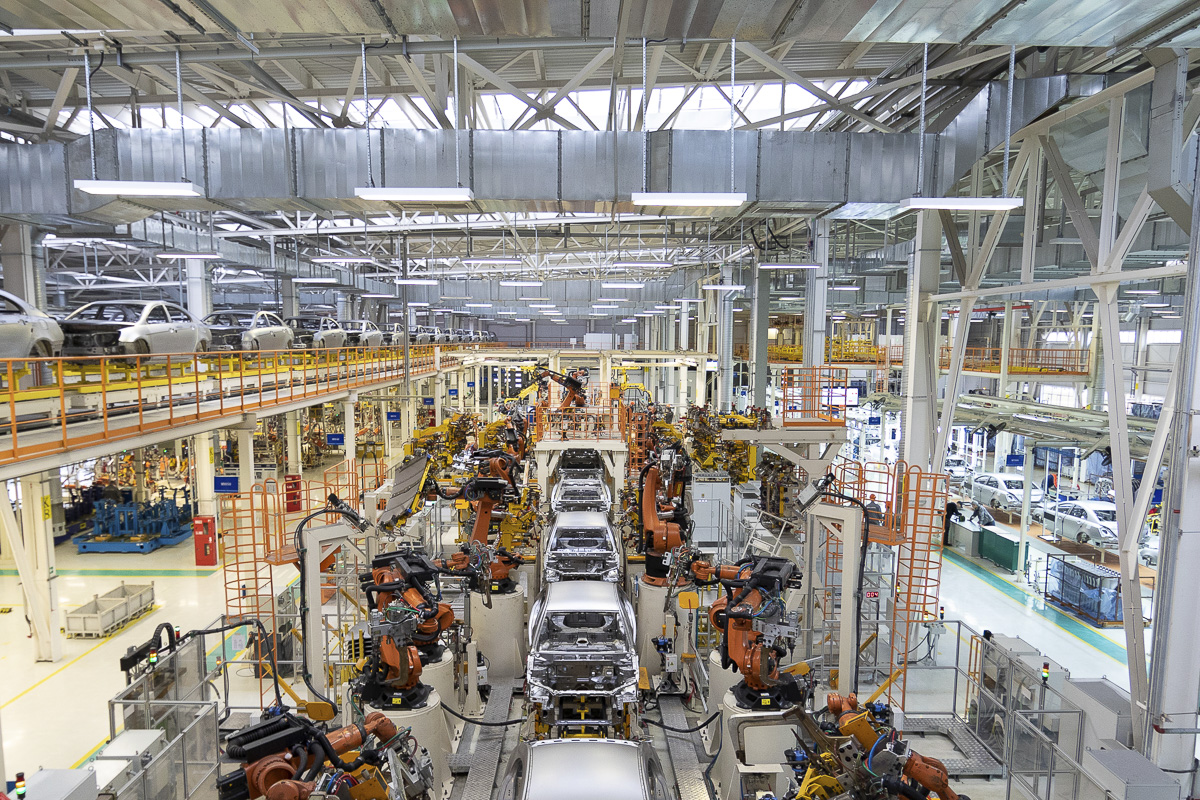In the course of just a few short weeks, the coronavirus (COVID 19) has had a devastating effect on daily life in America, as well as each of the automakers that builds cars here. Tens of thousands have been infected, hundreds have died, many are permanently or temporarily unemployed, and most of us have been advised to stay at home except for occasional runs for essentials like groceries and medications.
In this post we’ll take a look at what actions U.S. automakers are taking in response to the constantly evolving coronavirus situation and how these actions are affecting the millions of people earning a paycheck directly or indirectly from companies like General Motors (GM) and Ford.
Plant Closures: US Automakers
Due to the rapid spread of the coronavirus and growing concern from employees, GM, Ford, and Fiat Chrysler Automobiles (FCA) formed an agreement on March 17 to throttle down production while also focusing on Centers for Disease Control and Prevention (CDC) guidelines, such as providing 6 feet of distance between workers, increasing the frequency of workplace cleaning, and allowing eligible employees to work from home. That plan was scrapped just one day later; on March 18, the three companies, often collectively referred to as the Detroit 3, announced they would suspend production at all their U.S. production facilities until March 30. Since then, Ford has reported that it will monitor developments daily but delay reopening its plants. FCA has informed the UAW that it now tentatively plans to restart operations on April 14.
Plant Closures: Foreign Automakers
Several other car companies also build vehicles in the US. Toyota, with factories in Texas and other states, planned to close between March 23 and 25 to deep-clean all workspaces, but later revised that to a complete shutdown until April 20. Honda, which has factories in Ohio and elsewhere, stopped production on March 23 with hopes of restarting April 7. Nissan, with a large manufacturing presence in Tennessee, sent workers home on March 20 and, like others, plans to get things rolling again April 7.
Some folks may not know that Hyundai builds some of its vehicles here in the U.S., specifically in the state of Alabama. That plant was closed on March 18 and is due to reopen on March 31. Volvo has a relatively small production setup in South Carolina, which closed March 19 and isn’t due to go back online until April 14. Mercedes-Benz, another player with plants in the southeast, has sent its workers home until at least the end of March. Tesla shuttered its California factory March 23 with a restart date to be determined, though the company’s massive Nevada facility continues production. (Tesla’s partner in that plant, Panasonic, has idled its operations.) BMW, Volkswagen, and Subaru will all put a halt to their US production on March 29. Those closures are expected to last at least two weeks.
Assisting Employees and Communities
In an effort to support people affected by the coronavirus, automakers are taking various approaches to help. GM, for example, is offering $1 million in grants to non-profit organizations in areas where it operates, and Hyundai is donating $2 million to children’s hospitals.
To assist employees through this difficult time, Honda announced it would provide full pay during its shutdown, which is expected to last until March 31. For companies with UAW contracts, workers will receive a combination of union and unemployment benefits.
Supplying Critical Equipment
Perhaps most significant is the role automakers can play in the development, production, and distribution of scarce medical equipment that will be needed as the coronavirus spreads. President Trump has activated the Defense Production Act, allowing him to direct US manufacturers to build essential supplies, but he has yet to force any companies to do so.
GM didn’t wait for the call, as it initially announced that it would assist Ventec Life Systems increase production of much-needed ventilators. More recently, GM suggested it was looking at ways it could assemble those machines in its own factories. Hospitals need tens of thousands nationwide, and GM’s vast production capacity could help meet that demand quickly.
Ford is also stepping up to the plate with its own plans. In conjunction with 3M and General Electric (GE), the maker of Mustangs is using some innovative engineering solutions to address several shortages. Among them, a fan used to cool F-150 seats has been repurposed for use in an air-purifying respirator, 3D printers are being transitioned away from building car parts to creating components for medical equipment, and clear plastic face shields have been designed and are already being tested. Additionally, like GM, Ford is working with an outside company to expand the production of ventilators.
Everything Is Subject to Change
If there’s one thing we’ve all learned about life with the coronavirus, it’s that plans and forecasts are fluid and may be better described as hopes and guesses. The automakers, many of which operate in states closed to all “non-essential” businesses for at least the next couple of weeks, may not have the power to determine when their plants will reopen. On the other hand, conditions may improve, with switches turned on and people back to work sooner than anticipated. Time will tell.
For more auto news, check out these articles:
- The Range Rover Sport HST Hits the Sweet Spot
- With the 2020 Infiniti Q50, Style Comes Standard
- The Jaguar F-PACE SVR: A Modern-Day Supercar
The post U.S. Automakers Respond to the Coronavirus Pandemic appeared first on The CarGurus Blog.
from The CarGurus Blog https://bit.ly/3dEIxIH




Comments
Post a Comment